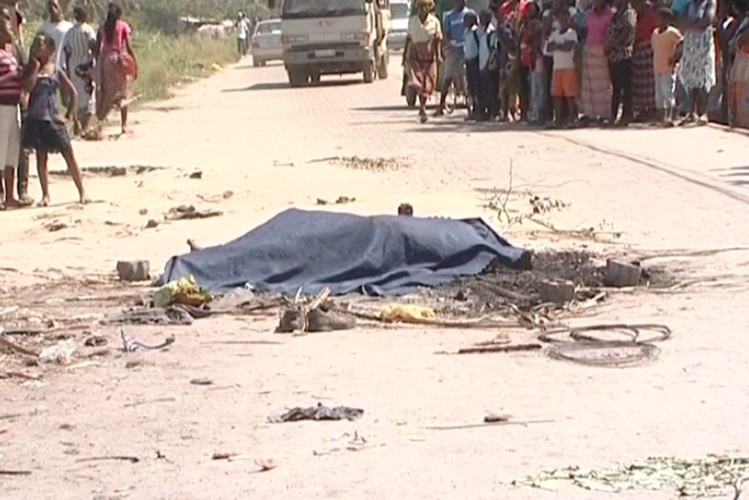Mozambique: UEM only graduates a third of students admitted each year
Mob justice claims two victims a week in Mozambique – Human Rights Commission

Folha de Maputo / A victim of mob justice in November 2015, Beira
President of the National Human Rights Commission (CNDH), Custódio Duma characterised Mozambique’s average two mob justice victims per week as “heavy”, warning in an interview with Lusa of the risk of a culture of taking the law into one’s own hands taking root in Mozambique.
Summary justice accounted for 27 deaths in 2016, according to the Attorney General’s Office.
The CNDH president admitted that public violence towards alleged offenders could be the result of the public feeling that the authorities were powerless to fight crime.
“Evidently, this [distrust of the authorities] may be the prime reason, but what happens is that, then, it becomes culture,” he said.
State institutions and civil society should encourage the population to use judicial institutions, because insistence would eventually produce results, Duma believes.
“I think that with the citizen’s own insistence on going to the Attorney General’s Office, the police station, the situations will be solved. We have to have this discourse of encouragement for the citizen to go to the institutions of justice and not to take justice into their own hands,” he said.
The commission is committed to educating the public about the illegality of mob justice and the need to resort to authorities in reporting criminal activities.
At the end of August, the Provincial Police Command of the Republic of Mozambique in central Sofala reported that nine people died in mob justice in the first half of the year in the province, announcing public awareness actions to stop the practice.
Attorney General Beatriz Buchili lamented the numbers in her annual report on criminal activity in the country to parliament in April.
“According to statistics collected, the country recorded, on average, two lynchings per week in 2016. The numbers unfortunately show that they have become standard practice in Mozambique,” Buchili said.
In the information provided, the Attorney General indicated that 87 mob justice cases were opened in 2016, as against 33 in 2015, and that 49 of those were prosecuted.
The attorney general pointed out that mob justice was a social problem that could not be solved solely by repressive actions, and said that prevention should be given priority.
“As well as prosecuting, the PGR and subordinate bodies are carrying out annual mobilisation and awareness actions in order to contribute to the development of the necessary actions to prevent and combat this evil,” Buchili concluded.












Leave a Reply
Be the First to Comment!
You must be logged in to post a comment.
You must be logged in to post a comment.